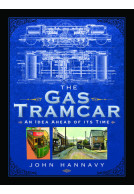Chiltern Railways (Hardback)
The Inside Story
Imprint: Pen & Sword Transport
Pages: 192
Illustrations: 200 colour & black and white illustrations & a route map
ISBN: 9781526792495
Published: 8th February 2022
Last Released: 12th September 2023
(click here for international delivery rates)
Need a currency converter? Check XE.com for live rates
| Other formats available - Buy the Hardback and get the eBook for £1.99! | Price |
|---|---|
| Chiltern Railways ePub (36.8 MB) Add to Basket | £15.59 |
This book, uniquely, gives an insight to the business strategy and its delivery that underpinned the performance of one of Rail Privatisation’s greatest successes.
It also shows the reader some of the many ‘behind the scenes’ jobs which are essential to the functioning of a railway but which are rarely seen by outsiders.
Throughout, it demonstrates that a railway, like many other endeavours, is a team effort. Every employee is just as important as the boss. He can have a day off and it all still works. If a driver or a maintenance fitter, working on their own, make a mistake all hell can be let loose.
At a time of change, partly brought about by Covid, this book gives strong clues as to how the Nation’s railways might be more efficiently organised and run.
It is easy to read and copiously illustrated.
"I can recommend it".
The Journal of The Stephenson Locomotive Society - July/August 2023 - No.942, Volume 99
This book provides an interesting account of the Chiltern line’s transition from national to private operation, told by one of the men who led a management buyout of Chiltern Railways in 1996. Adrian Shooter went from a junior volunteer on the Ffestiniog Railway to a BR engineering graduate trainee in the 1970s, working his way up the management pole. After retirement, he set up VivaRail, the team behind the rebuilding of former London Underground trains into Class 230 DMUs.
Model Rail Magazine
Providing an insight into Chiltern’s business strategy through the early years of privatisation and a behind the scenes look at how the franchise was operated, the author also ponders how the railways will react in a post-Covid world.
The author of this book is well known in FR circles, having joined the Society at the age of 14 and become its youngest Director, serving from 1971 until 1981. His career was spent in the rail industry in engineering, operations and marketing and he has long held an affection for the narrow gauge, operating his own Beeches Light Railway, and owning the Darjeeling Himalayan Railway, Sharp Stewart, 0-4-0ST No.19.
Ffestiniog Railway Magazine - Autumn 2022
In 1993 he was appointed Managing Director of Chiltern Railways, and went on to lead a management buyout in 1996. This book tells the tale of the privatisation process, and the subsequent successful operation of part of the network that had faced the threat of closure under British Rail. Your reviewer was particularly pleased to accept this assignment since it brought back happy memories of childhood days spent at his local Sudbury & Harrow Road station watching, amongst other treats, Stanier 8F 2-8-0s shunting coal wagons in the adjacent yard.
In many circles, rail privatisation isn’t regarded as a resounding success. This book provides valuable insights as to where things went wrong and how, against the odds, it was possible to set up a successful business despite all the bureaucratic hurdles placed in the way. The story includes the history of the line between Birmingham Snow Hill and London Marylebone and takes the reader through the process of upgrading the infrastructure, and running a railway operation that was heavily focused on customer service. Adrian does not pull any punches when describing the abilities of the various Government departments and individuals involved in privatisation, but also goes on to praise various members of his team who helped create an effective railway operation. Some useful insights for us all here.
The book is very well illustrated, and proved to be a fascinating read. Recommended to anyone interested in how our national railway network got to be where it is and how to run a successful railway business despite the inbuilt inefficiencies of the system.
"Highly recommended."
Industrial Railway Society
This is the story of a train operating company which became one of the major successes of railway privatisation in Britain, told by the man who led Chiltern Railways from his appointment as director designate in 1993 through the management buyout in 1996 and the development of the franchise until his retirement as Chairman in 2011.
Tim Edmonds, The RCHS Journal
By way of introduction the author gives a frank personal description of the way in which rail privatisation was envisaged and executed. His view is that it was bungled by civil servants, accountants and lawyers who had no understanding of what running a railway meant. Then he shows how a high-level vision of a privatised Chiltern was developed into a long-term plan. The main part of the book describes how this plan was executed.
What made the Chiltern approach to their franchise different was that it was based on expansion, rather than the status quo, and it was developed by people familiar with the railway industry. Shooter understood people and he achieved staff backing to deliver a service focussed on what passengers wanted – a safe railway, with comfortable trains running frequently and on time, improved car parking, ticketing and stations. The narrative shows how innovative Chiltern was and lifts the lid on much of the background work that Shooter and his team did to achieve success, winning a twenty year franchise extension on the way. Projects given the ‘inside story’ treatment include new class 168 Clubman trains, Parkway stations at Warwick and Aylesbury Vale, extensions of services to Kidderminster and Oxford, reinstating double-track between Princes Risborough and Aynho Junction, reopening the terminal platforms at Birmingham Moor Street and adding two new platforms at Marylebone. A chapter on safety includes the aftermath of the 2005 Gerrards Cross tunnel collapse and bridge bashing problems.
This is a lively and readable book, attractively presented in a large format and well-illustrated with photographs, letters, and documents that directly supplement the text, although some captions lack sufficient detail. There is no index or bibliography, but the nature of the work makes the latter unnecessary. Shooter presented the 2013 Clinker Lecture about Chiltern Railways and the privatisation process (published in RCHS Journal No 220, July 2014) and this book extends his direct and forthright approach to the subsequent development of Chiltern. As the personal view of a successful career railway manager, it gives a unique insight into the political and business machinations involved in railway privatisation in general, and Chiltern in particular. Many of the author’s candid observations about various railway, business, legal, academic and political figures and organisations are critical, but he also gives praise where it is deserved, including to Labour politicians John Prescott and Andrew Adonis – and that from a lifelong Conservative. The nature of the book means that it does not present a balanced view, but it is a fascinating story and essential reading for those interested in recent railway history. With its profuse illustrations it should also have an appeal to the wider public as well as railway professionals and enthusiasts.
"A very readable book giving an excellent insight into establishing a successful railway operation."
The Railway Correspondence and Travel Society - The Railway Observer, July 2022, Volume 92, Number 1121
Review as featured in:
Rail Express
This is not a book for someone looking for in depth profiles of the Chiltern rolling stock, although they do of course feature briefly where appropriate, but a book for someone who is interested in finding out how and why decisions were made and how those decisions were delivered. It does not matter if you agree with rail privatisation or not this is a fascinating and excellent read which is difficult to put down. A well-chosen selection of excellently reproduced photographs and maps accompany the text. Overall this is a quality, well written and presented hardback book which is easy to recommend and good value at the RRP.
Diesel and Electric Modellers United, Winter 22 Issue
Review highlight: 'If you are interested in the story of railway privatisation and what is involved in running a successful Train Operating Company, this book is a must. Highly recommend.'
Railways Illustrated
As featured in:
Competition as featured in
Rail
A book that provides a valuable insight into the management of a railway company that is widely regarded as one of the success stories of Rail Privatisation in Britain. Each chapter is extremely well researched and eminently readable. The content is a balanced mix of text and photographs, with many of the photographs showing employees who made Chiltern such a success. All photographs are well reproduced and the maps clear without extraneous detail. Highly recommended.
Rail Advent
Read the full review here
"An interesting book by a top manager."
York Model Engineers Newsletter - March 2022
"Highly recommended".
Birmingham2London
Read the review here
As Featured In
Modern Railways February 2022
About Adrian Shooter
Adrian Shooter joined the Festiniog Railway Society, aged 14. He has had a 2 ft gauge railway in his garden for almost 20 years.
Meanwhile he helped run the school Railway Society and went on to join British Railways as an Engineering Graduate Trainee in 1970.
Rising through the ranks, he led a Management Buyout for Chiltern Railways in 1996 and went on to demonstrate that railways really can be a means of stimulating economic development.
After retiring in 2011, he set up Vivarail Ltd. which leads the way with railway Decarbonisation. He is also Chairman of SLC Rail.
















